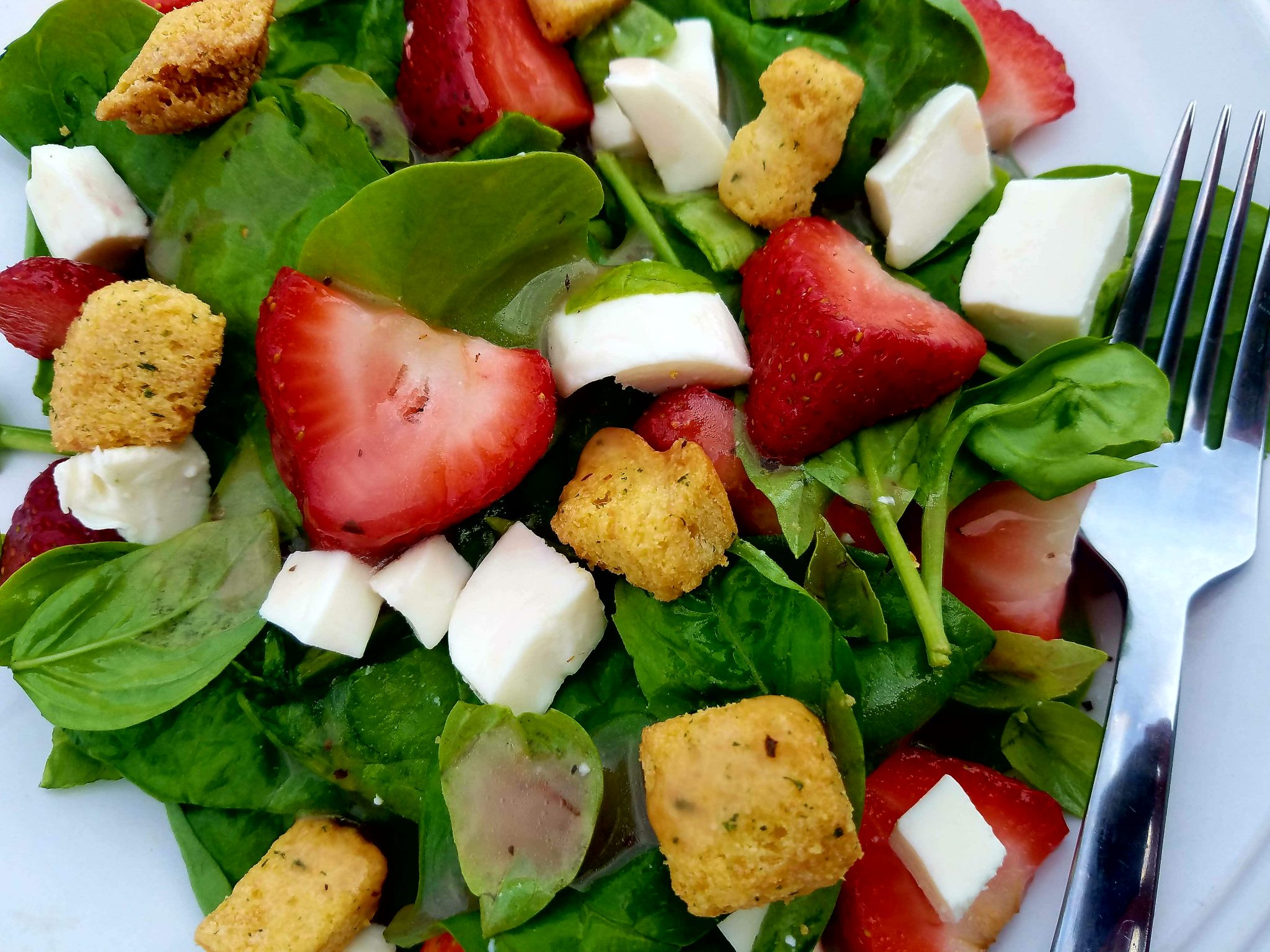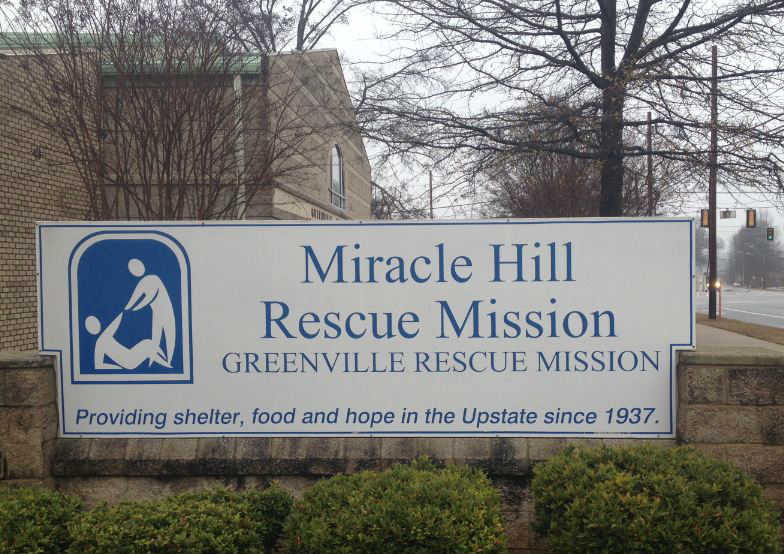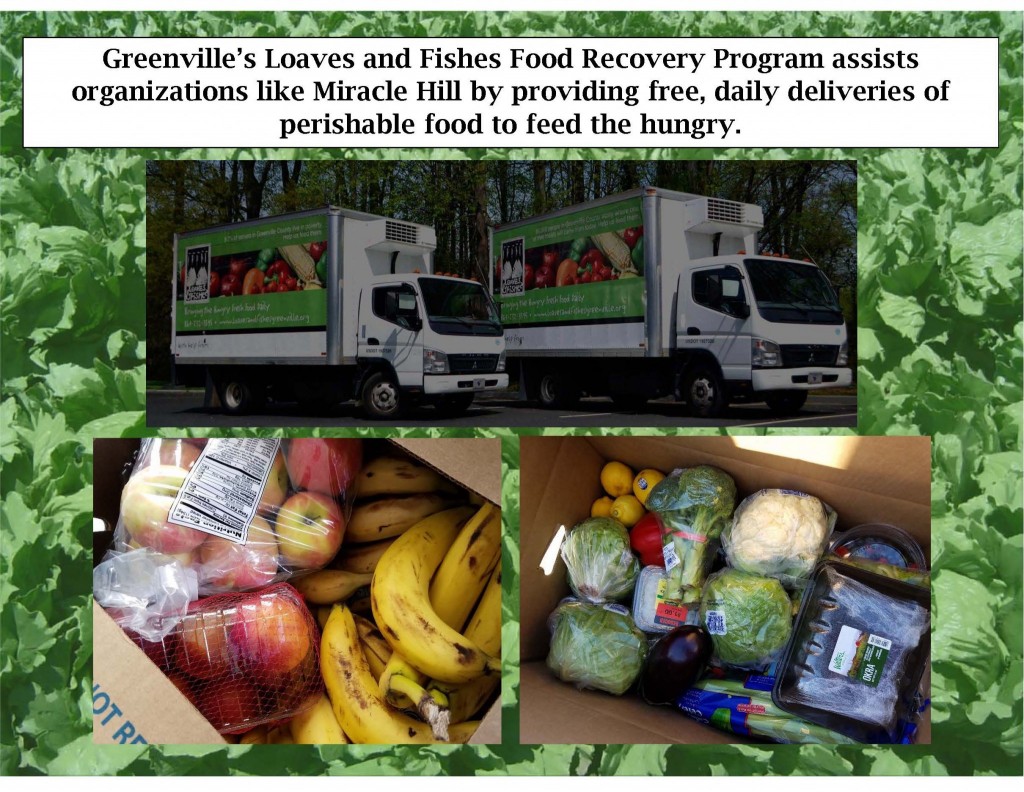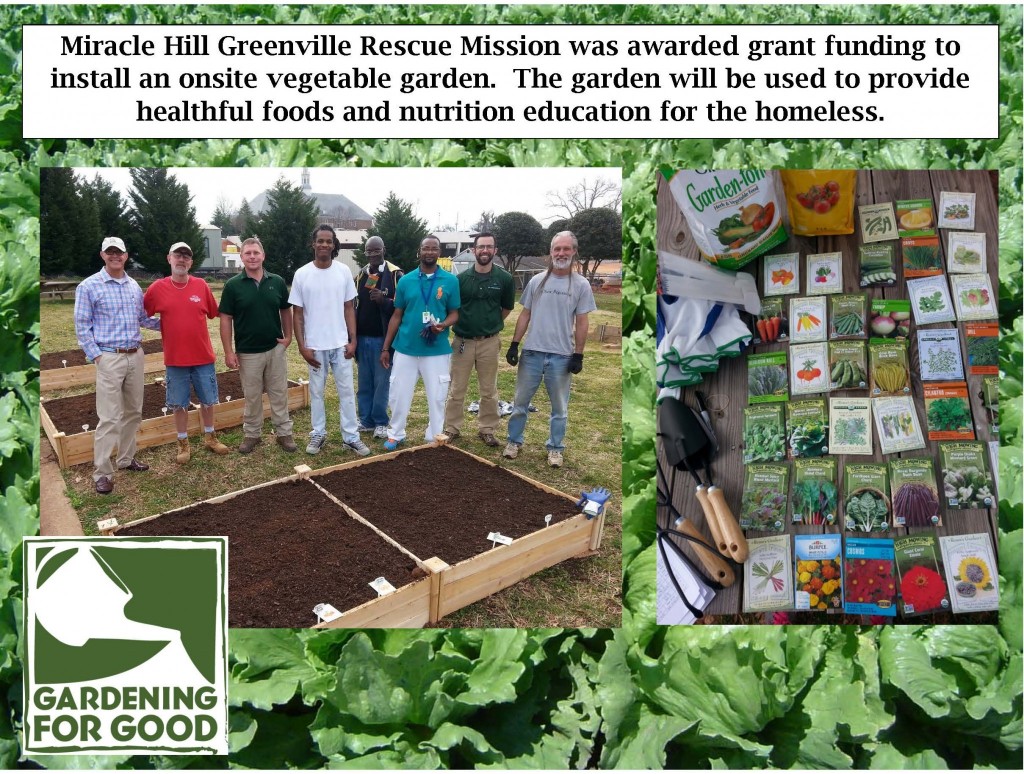Miracle Hill Ministries has been providing shelter, food, and hope in the Upstate since 1937. They currently operate in four upstate counties including Greenville, Spartanburg, Pickens, and Cherokee. Their facilities include homeless shelters for adults, children, and families as well as addiction recovery programs and thrift stores.
Last fall, Doug Bailey and Mark Alverson from the Miracle Hill Greenville Rescue Mission felt led to provide healthier meals to the hungry and homeless. They were particularly concerned about some of their residents who were already battling conditions such as high blood pressure or diabetes. They reached out to our Health Sciences Department here at Furman and the Piedmont Dietetic Association for some direction. Registered Dietitian Courtney Lee and I were both eager to volunteer our services to help.
So how would Courtney and I sum up all of our nutrition knowledge to feed healthier meals to the hungry?
Simple. The FUEL plate.
The Greenville Rescue Mission was the perfect place to implement the FUEL plate. Each day, the kitchen staff cook and plate meals for 150-170 homeless men and a few families who are temporarily residing in the facility. They were relieved to learn that one simple strategy can improve so many different conditions.
Courtney and I discussed how this easy, plate-based eating guide can help to improve nutrient intake, facilitate weight management, and improve health outcomes associated with chronic diseases such as heart disease and diabetes. Our work at Furman over the past six years has already demonstrated how easy it is to improve health, just one plate at a time (click here to learn more).
Large posters of the FUEL plate are now prominently displayed in the Rescue Mission kitchen to provide guidance for the kitchen staff as they prepare and plate meals each day. The poster is also displayed in the dining room with additional nutrition education information.
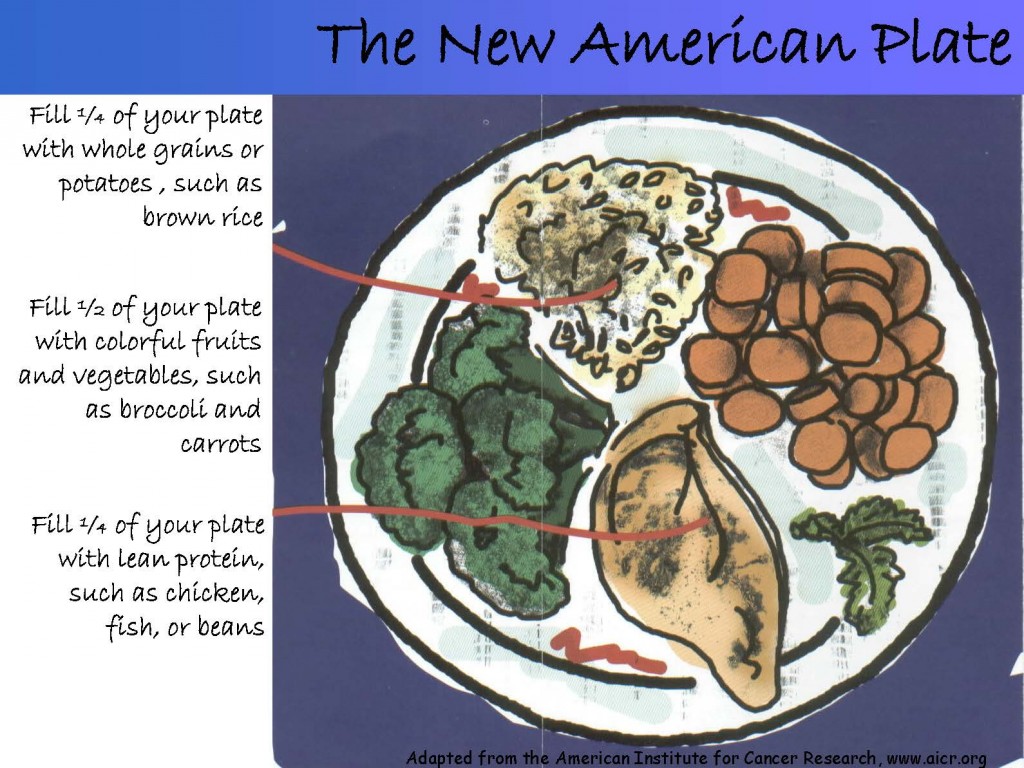
But our work didn’t stop there.
Training in Nutrition Education and Healthy Cooking Skills
The kitchen staff are receiving training in nutrition education and healthy cooking skills. Since the majority of the foods used at this facility are donated from food recovery programs, they must know how to be resourceful. The kitchen manager was eager to learn how to read food labels and shop for healthful foods when they have the opportunity to do so. The kitchen staff participated in a healthy cooking challenge workshop where they worked in teams to assemble different portions of the plate with unfamiliar foods.
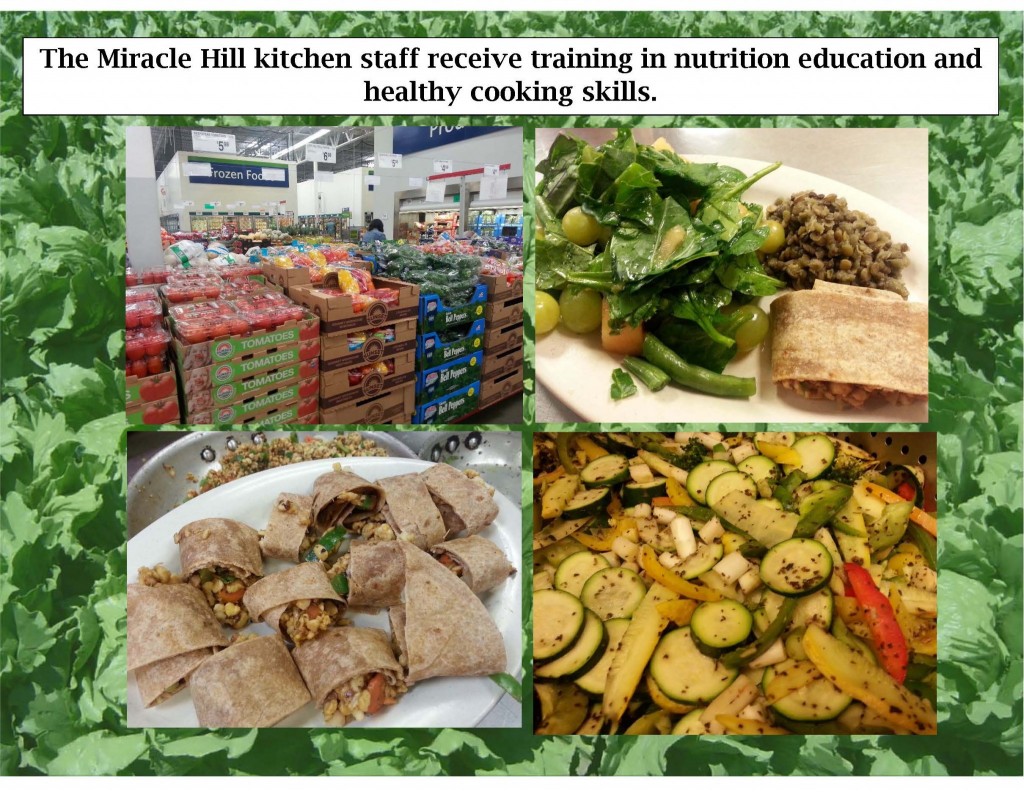
Eat Well signage promotes healthful foods in the distribution warehouse
Miracle Hill has a food distribution warehouse that supplies food to multiple facilities. “Eat Well” signs promote healthier foods throughout the facility to ensure that we are utilizing every healthful food that we possibly can.
Loaves and Fishes Food Recovery Program provides free, daily deliveries of perishable foods
Loaves and Fishes is the only food recovery program in Greenville that provides free, daily deliveries of perishable food to the hungry. They distribute to over 92 facilities regularly, including Miracle Hill. Under the direction of Executive Director Paulette Dunn, Loaves and Fishes was eager to help support the efforts of Miracle Hill and expand this work throughout the community.
Gardening for Good awards the Rescue Mission with grant funding to install an onsite vegetable garden
Led by Aerin Brownlee, Gardening for Good recently awarded the Rescue Mission with grant funding and the supplies to build four 4×8 foot raised bed gardens onsite. The gardens will be used to provide healthful foods year-round and will be incorporated into nutrition education and healthy cooking training for the homeless. Aaron Frazier, Mark Vinson, and Brandon Springer from Groundsmaster Landscaping Company volunteered their time and expertise to help install the gardens and oversee the project.
Would you like to get involved? There is still much work to be done to battle food insecurity in our community. Consider some of these steps to provide healthier foods to feed the hungry:
1. Host or donate to a Food Drive. Look for healthful non-perishable foods such as canned vegetables, fruits, beans, whole grain pasta, brown rice, quinoa, oats, whole grain crackers and cereals, canned tuna or salmon, peanut butter, natural popcorn, healthier canned soups, healthier bottled dressings and marinades, oils, vinegars, dried herbs, and spices.
2. Donate your resources. In additional to non-perishable foods, consider other forms of donations. The kitchen manager can use grocery store gift cards to purchase foods that are not available at the donation center. A local hunter donated fresh meat and a local church donates all of the food produced with its onsite garden to help organizations like Miracle Hill.
3. Volunteer your time. Organizations like Miracle Hill homeless shelter and Project Host soup kitchen welcome volunteers to help prepare food in the kitchen, provide assistance with the onsite gardens, or provide other services that can help those in need.
Together, we can make a difference.
Click on the picture below to watch a short video about the work at Miracle Hill:
